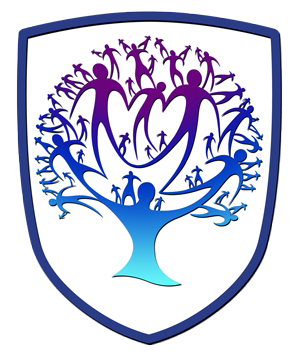One lesson per week is dedicated to CaRE (Citizenship and Religious Education)
| Year | Term 1 | Term 2 | Term 3 |
|---|---|---|---|
| Year 7 | Unit 1: RE - What is RE? ● What are the 4 main religions in the world today? ● What are the key elements to religion? ● What importance does religion hold to different people? Unit 2: Citizenship - British Values ● Develop an understanding of British values, ● Knowing the value of community, citizenship, nationality and immigration ● Exploring the importance of the armed forces, NHS, EU and UN | Unit 2: Citizenship - British Values ● Develop an understanding of British values, ● Knowing the value of community, citizenship, nationality and immigration ● Exploring the importance of the armed forces, NHS, EU and UN Unit 3: RE - Religious buildings ● The importance of religious buildings and considering ‘Should places of worship be sold to help the poor?’ ● Understanding of the different practices and meanings behind buildings and worship |
|
| Year 8 | Unit 1: RE - Is death the end? ● Exploring religious views about life after death ● Understanding of the various religious and non-religious arguments for afterlife Unit 2: Citizenship - Parliament and Law ● Know the role and processes of Parliament and the government ● Understanding how laws are made and the legal system in place in the UK | Unit 2: Citizenship - Parliament and Law ● Know the role and processes of Parliament and the government ● Understanding how laws are made and the legal system in place in the UK Unit 3: RE - Religious practices and rites ● Exploring the practices, ceremonies and events marking an important stage in someone's life, especially birth, the transition from childhood to adulthood, marriage, and death. |
|
| Year 9 | Unit 1: RE - Why does God allow suffering? ● If there is a God why does suffering take place? Comparing religious/non-religious points of view. Unit 2: RE - Religion and early life: ● Identifying the beliefs and actions of religions when it comes to early life. | Unit 2: RE - Religion and early life: ● Identifying the beliefs and action of religions when it comes to early life. Unit 3: Citizenship - Rights and Responsibilities ● Know different types of human rights and responsibilities ● Understanding of hate crimes ● Explore reasons why people protest and campaign for change |
|
| Year 10 | UNIT 1: Christian key beliefs ● The nature of God; Creation; Afterlife ● Life of Jesus Christ; incarnation, life, crucifixion, resurrection and ascension Buddhist key beliefs: ● Buddhist key beliefs ● The key teachings of The Four Noble Truths and Eightfold Path and afterlife Buddhist practices: ● Ethical teachings | UNIT 3: Theme A - Relationships and families ● Sex, marriage and divorce ● The nature and purpose of families ● Contemporary family issues including: same-sex parents, polygamy, roles of men and women, gender equality, prejudice and discrimination. UNIT 4: Theme B: Religion and life ● Religious and non religious views on the creation of the universe and evolution ● Ideas on the responsibility to look after the world ● Understanding attitudes about abortion, euthanasia and animal experimentation. | UNIT 5: Christian worship and practices ● Different forms of worship and prayer and their significance ● The role and importance of pilgrimage and celebrations ● The role of the church in the local and worldwide community; missions, Church growth, reconciliation, persecution and aid/charity |
| Year 11 | UNIT 1: Buddhist worship ● Buddhist places of worship; temples shrines and monasteries; the significance of different forms of worship. ● Religious festivals and ceremonies ● Ethical teachings UNIT 2: Theme D - Religion, peace and conflict ● Religious attitudes about peace and justice; violent protests; terrorism; war | UNIT 3: Theme E - Religion, crime and punishment ● Ideas of good, evil and suffering. ● Understanding motivation, cause and impact of crime ● Recognising different types of crime ● Understanding different forms of punishment | UNIT 3: Recap and revise the 2 religions and themes studied. ● Revision methods and techniques ● Completing past papers and practice questions |

